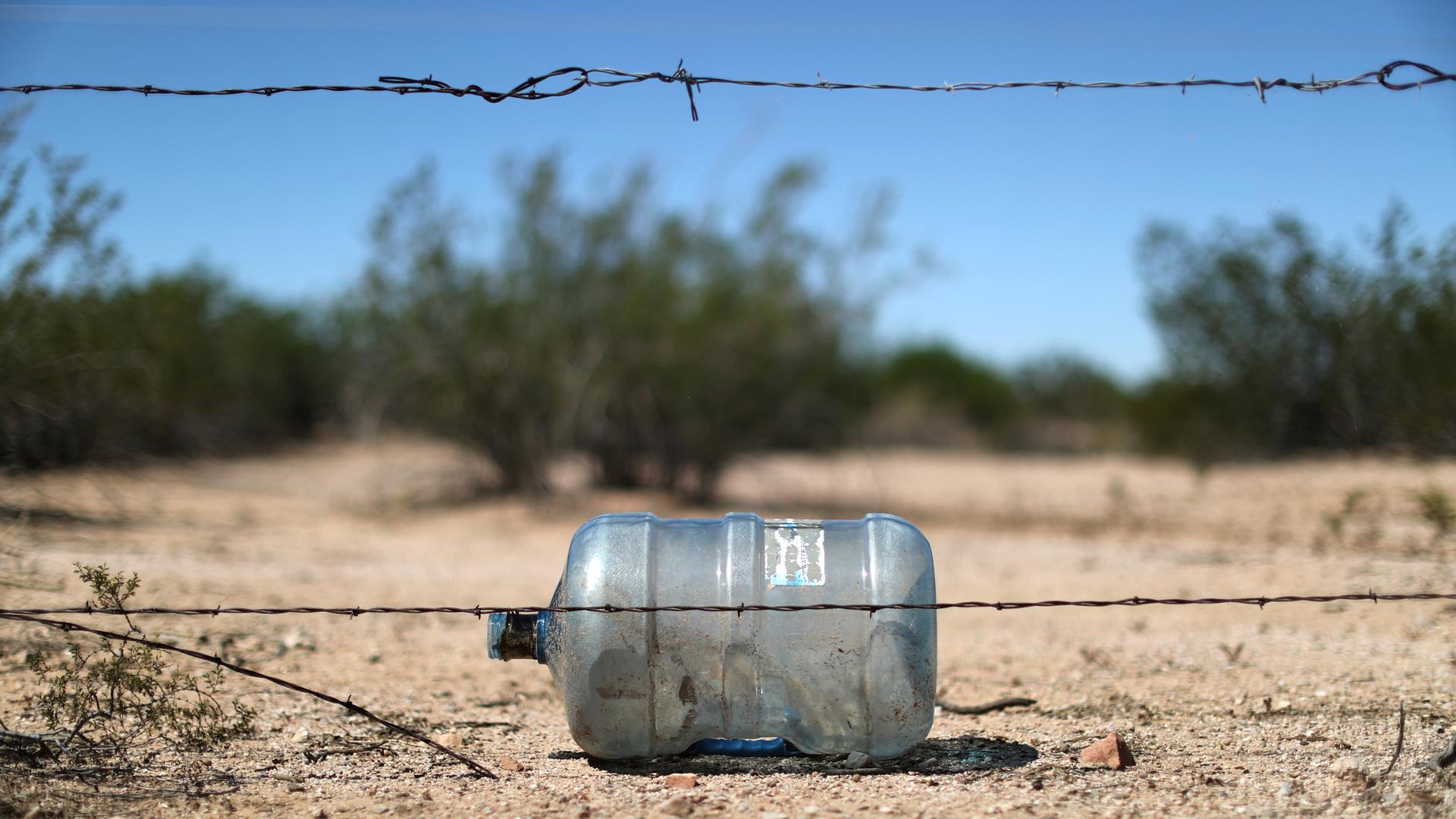Crimes of compassion: US follows Europe’s lead in prosecuting those who help migrants
A water bottle lays in the desert, possibly left by a migrant crossing the US border. Aid groups say governments are increasingly targeting those who help migrants in both Europe and the US.
Sometimes the defendant is a Spanish firefighter who saved migrants from drowning at sea. Other times it is elderly couples in Denmark, France and Greece who gave people a lift in their cars.
Their crimes? Aiding fellow humans.
At least 250 volunteers and aid workers across 14 European countries have been arrested, charged or investigated for supporting undocumented migrants in the past five years, according to a comprehensive report released last month by UK-based news organization Open Democracy.
And now, a similar scene is playing out in a Tucson, Arizona, courtroom. Scott Warren, a volunteer with faith-based humanitarian group No More Deaths, is on trial for feeding and providing two migrants with access to shelter for several days as they tried to cross a deadly stretch of Arizona desert.
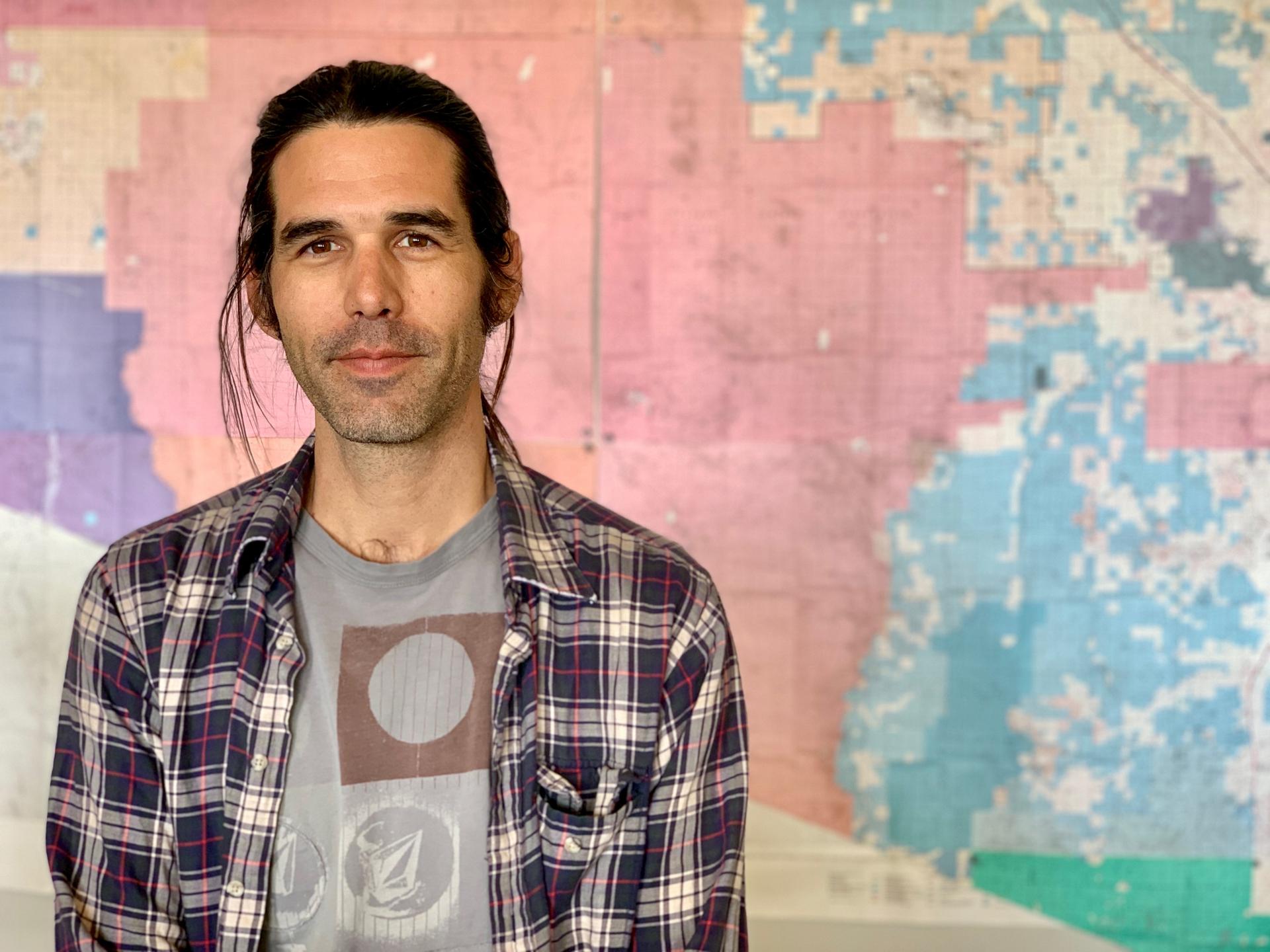
But where the US is just beginning to ramp up prosecutions of those who help migrants, it’s been happening in Europe for years — ever since its 2015 refugee crisis.
Most of the European cases have occurred since the start of 2018, signifying a recent increase in what the European aid groups and their allies call the “criminalization of solidarity.” They view the jump as part of a wider crackdown aimed at stopping migrants and refugees from reaching European shores and crossing borders on the continent once they arrive. Similarly, under the Trump administration, the US has seen an increase in prosecutions of people for harboring, sheltering or providing aid to migrants.
Warren faces three felony charges: two counts of harboring undocumented migrants and one count of conspiracy to transport and harbor them. He could spend up to 20 years in prison if convicted on all counts. The trial is expected to finish in the coming days.
Related: An aid worker is on trial for helping migrants. But groups like his are still doing their work.
The parallels between the US and Europe are stark, says Brian Griffey, a North America researcher with Amnesty International who is preparing a report on the criminalization of humanitarian and human rights work at the southern US border.
“Just as European governments have inappropriately and unlawfully sought to prosecute human rights defenders for saving drowning migrants in the ocean, the US government is now trying to prosecute humanitarian actors for saving dehydrated migrants in the desert.”
“Just as European governments have inappropriately and unlawfully sought to prosecute human rights defenders for saving drowning migrants in the ocean, the US government is now trying to prosecute humanitarian actors for saving dehydrated migrants in the desert,” Griffey said. “It’s a different instrumentalization of a natural barrier to deter migrants and asylum seekers potentially at risk of death.”
‘Criminalization of solidarity’
Similar to the United States, civil society groups in European have a decades-long history of providing sanctuary to undocumented migrants. They have stepped in to cover gaps when governments cannot or will not take responsibility for the people arriving on their shores.
European nonprofits’ work captured the world’s attention in 2015, when some 1 million asylum seekers and migrants landed in frontline countries such as Italy and Greece by boat. Volunteers flocked to help.
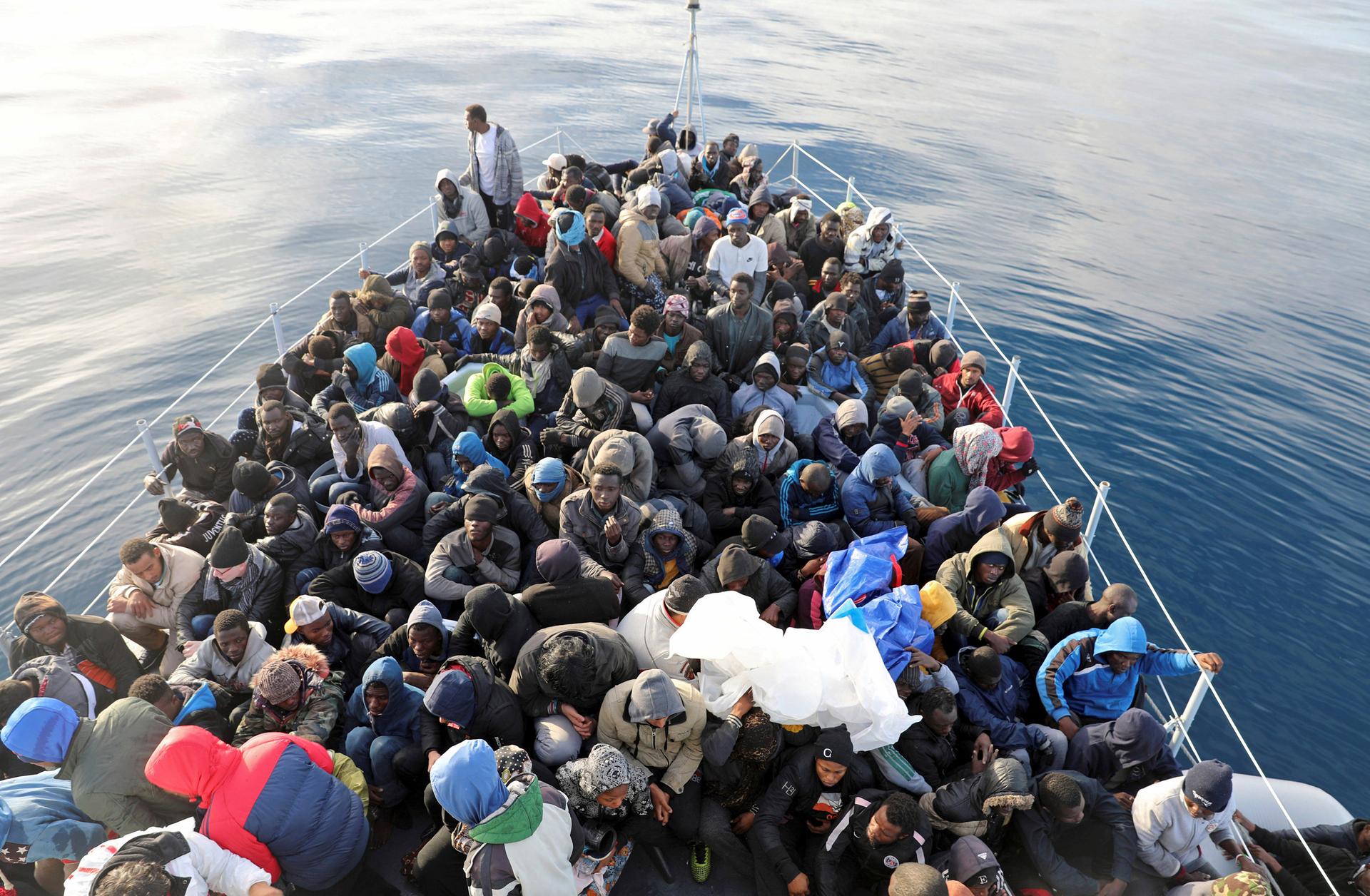
That led some politicians — particularly those on the extreme right — to criticize the work of NGOs carrying out search-and rescue missions at sea as incentivizing more migrants to make the dangerous crossing. Italy’s populist League and Five Star Movement call the NGOs “migrant sea taxis” and has accused them of doing business with traffickers because the vessels ferry people to European ports after rescuing them from drowning.
Related: What it’s like aboard an NGO ship rescuing hundreds of migrants in the Mediterranean
Similar to their US counterparts, Europe’s humanitarian groups paint the situation as a standoff between morality and the law: It pits what they view as a moral obligation to save lives against inflexible government policies.
Law enforcement and policymakers in Europe have gone about stopping the groups’ work in various ways.
Sometimes they pass legislation restricting NGO operations. Last year, for example, Hungary passed its broad “Stop Soros” law. Drafted by Prime Minister Viktor Orbán, it makes it a crime for individuals and organizations to help undocumented migrants. It’s named for Hungarian-American billionaire philanthropist George Soros, who Orbán has accused of funding Muslim immigration to Europe.
Related: In Orbán’s Hungary, refugees are unwelcome — so are those who try to help
Other enforcement measures target specific groups or private citizens. The Spanish firefighter faces charges of aiding illegal immigration and working with human traffickers because he helped rescue a group of North African migrants who were drowning in the Mediterranean Sea. In the UK, the “Stansted 15” — a group of activists who chained themselves around a deportation flight — in December were found guilty of “endangering the safety of an aerodome.” A judge decided not to imprison them.
There are two general categories of offenses, said Catherine Woollard, Secretary General of the European Council on Refugees and Exiles, or ECRE, a Brussels-based alliance of European NGOs.
“There are those cases where governments have criminalized migration in some way, and then they face a secondary offense as people who facilitate migration or support those migrating,” she said. “And the other category of offenses are what we might call misuse of security legislation — so people are charged with terrorism. People are charged with offenses related to organized crime.”
Related: She’s one of the Syrian refugee ‘hero swimmer’ sisters. Now, she’s in a Greek prison.
The majority of cases, according to Open Democracy’s findings, have taken place in seven countries: Italy, Greece, France, the UK, Germany, Denmark and Spain.
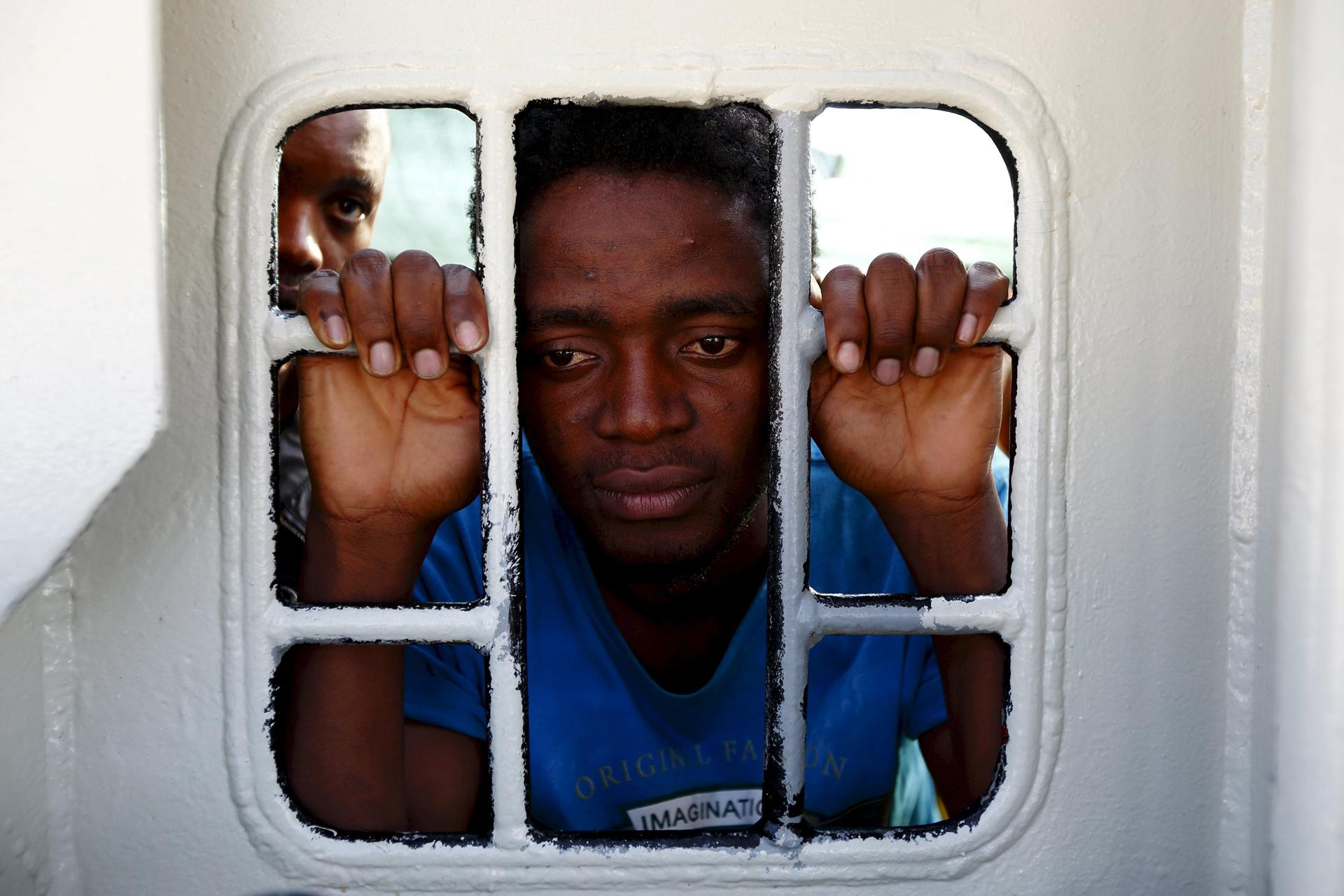
European migrant-rescue ships sidelined
One of the most concerted efforts in Europe to stop volunteers and NGOs from operating has involved search-and-rescue vessels on the Mediterranean Sea, where at least 2,275 migrants died last year. In over a dozen cases since 2017, Italy and Malta have barred NGO ships filled with just-rescued migrants from disembarking in their ports until other European countries stepped up with promises to take them in.
Italy, in particular, has wielded cumbersome bureaucratic measures to push NGO ships out of commission: It has ordered seizure of their ships over “illegal waste disposal” practices, forced them to sign restrictive codes of conduct, and closed its ports to ships not flying the Italian flag.
Taken together, these efforts have sidelined the NGO ships. At one point there were nearly a dozen NGO-run ships on the Mediterranean. Now, none are left. The last ship, Doctors Without Borders’ Aquarius, ended its operations in December.
“That is the direct result of harassment, arrests and criminal procedures by states — Italy, mainly — in the Mediterranean Sea. It’s illustrative of the criminalization of solidarity with migrants and refugees that we see across Europe and the US.”
“That is the direct result of harassment, arrests and criminal procedures by states — Italy, mainly — in the Mediterranean Sea,” said Hassiba Hadj Sahraoui, a humanitarian affairs adviser with Doctors Without Borders, which once operated three search-and-rescue ships. “It’s illustrative of the criminalization of solidarity with migrants and refugees that we see across Europe and the US.”
Related: Inside Italy’s plot to infiltrate migrant rescue boats in the Mediterranean
Doctors Without Borders launched its first ship in 2015 and the organization has since rescued tens of thousands of people. The reduction in rescue ships has coincided with a rise in the likelihood that migrants die while trying to make the journey, according to last year’s data from the UN’s International Organization for Migration.
In its latest move, the Italian government plans to fine NGO boats up to 5,500 euros per rescued migrant — a measure Claudia Lodesani, president of Doctors Without Borders in Italy, compared to “fining ambulances for carrying patients to the hospital.”
‘Good Samaritans’ caught in US enforcement dragnet
The US, too, has seen an uptick in arrests and prosecutions of people helping migrants.
More than 4,500 people were federally charged with bringing in and harboring migrants in fiscal year 2018, a 16 percent increase from fiscal year 2017, according to data from TRAC, the Transactional Records Access Clearinghouse at Syracuse University. While most of those cases did not necessarily target so-called “Good Samaritans,” aid groups operating along the border say they’re being caught in that enforcement dragnet.
Rev. John Fife, a retired Presbyterian minister and founding member of No More Deaths, said the group’s relationship with Border Patrol used to be mostly respectful, if not exactly friendly. That changed in April 2017, when then-Attorney General Jeff Sessions issued a memo asking federal law enforcement to make immigration offenses related to harboring undocumented migrants a “higher priority.”
“… we had an agreement with the Tucson sector of the Border Patrol that was in place for four years that recognized the work of No More Deaths and our camps as humanitarian aid centers and that they would respect those standards and respect our volunteers in the field.”
“Prior to that, we had an agreement with the Tucson sector of the Border Patrol that was in place for four years that recognized the work of No More Deaths and our camps as humanitarian aid centers and that they would respect those standards and respect our volunteers in the field,” said Fife, who also helped launch the United States’ sanctuary movement in the 1980s.
Soon after Sessions’ memo, Border Patrol raided No More Deaths’ desert base camp and arrested four undocumented migrants.
Earlier this year, four No More Deaths were found guilty of entering federally protected land without a permit to leave water jugs and canned food for dehydrated migrants. Though other No More Deaths volunteers were previously charged with conspiracy in the mid-2000s, Warren’s are the most severe charges any member of the group has faced. In an unrelated case more than 500 miles away in Marfa, Texas, city attorney Teresa Todd is under federal investigation for picking up three Central American migrants walking in a remote desert region.
US Customs and Border Protection, which oversees Border Patrol, along with the Department of Justice, each declined to comment for this story. CBP cited pending litigation.
In opening arguments for Warren’s trial, prosecutor Nathaniel Walters told jurors to focus on Warren’s actions.
“This case is not about humanitarian aid, or anyone in medical distress,” he said. “It’s about Scott Warren and his decision to shield two illegal aliens from law enforcement” for “several days.”
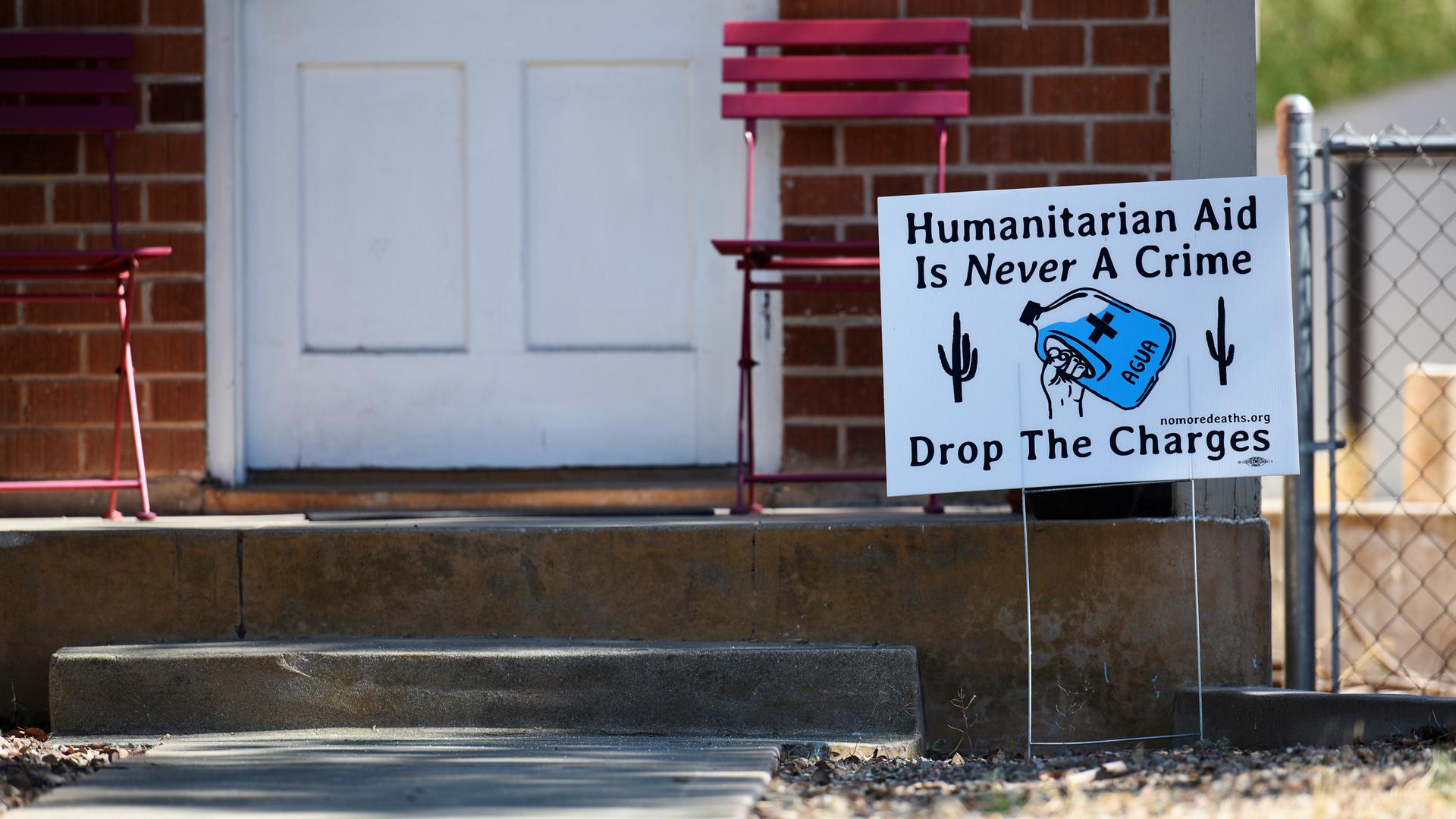
‘Right to life’ versus deterrence
If Europe holds any lessons for the US, it’s that criminally targeting NGOs, aid workers and volunteers may do little to stop irregular migration — and if anything, it leads to more deaths.
Indeed, the latest CBP figures show more than 144,000 migrants were arrested at the US southern border in May, a 32 percent spike from April. Record-breaking numbers of Guatemalan and Honduran children and families are behind the increase, which comes a time when President Donald Trump has employed measure after measure to stop them.
Europe, too, has seen continued migrant arrivals despite punitive measures to keep them from departing Turkey and North Africa.
“If the goal is to deter people from fleeing people poverty and conflict, the answer is no, they have not been successful.”
“If the goal is to deter people from fleeing people poverty and conflict, the answer is no, they have not been successful,” Sahraoui said. “NGOs are accused of being a pull factor. But now, there are no NGOs at sea, and people are still fleeing. So we see that the only result is to increase the mortality and to increase the risks people are taking.”
Related: Why are so many migrant families arriving at the southern US border?
And as US deterrence measures pushed people to cross the border at more dangerous and remote locations, the odds of dying have gone up even as the overall number of arrivals has declined in the past two decades, despite this most recent uptick. More than 3,000 migrants have died trying to cross the area where No More Borders operates since 2001, according to Pima County data.
Nonprofits on both sides of the Atlantic fear what an increasingly adversarial relationship with law enforcement means for the future of their operations.
“The bigger organizations will go around and fight for this principle of the right to life,” said Karl Kopp, director of European affairs with German nonprofit Pro Asyl. “But the little organizations are frightened and understand we have to keep quiet. They don’t want to speak out.”
Arizona’s aid groups — the smaller ones in particular — fear that if Warren is found guilty, they’ll have to stop serving migrants soup or providing them temporary shelter, said Katherine Franke, director of Columbia Law School’s Law, Rights and Religion Project. She filed an amicus brief in Warren’s case.
“The risks could radiate outward from these particular cases to anybody who may advertently or inadvertently provide aid to a person who doesn’t have legal papers,” Franke said. “They’re all worried that the federal government is going to come after them as well for providing aid to undocumented people or to people who are on their way of making an asylum claim.”
